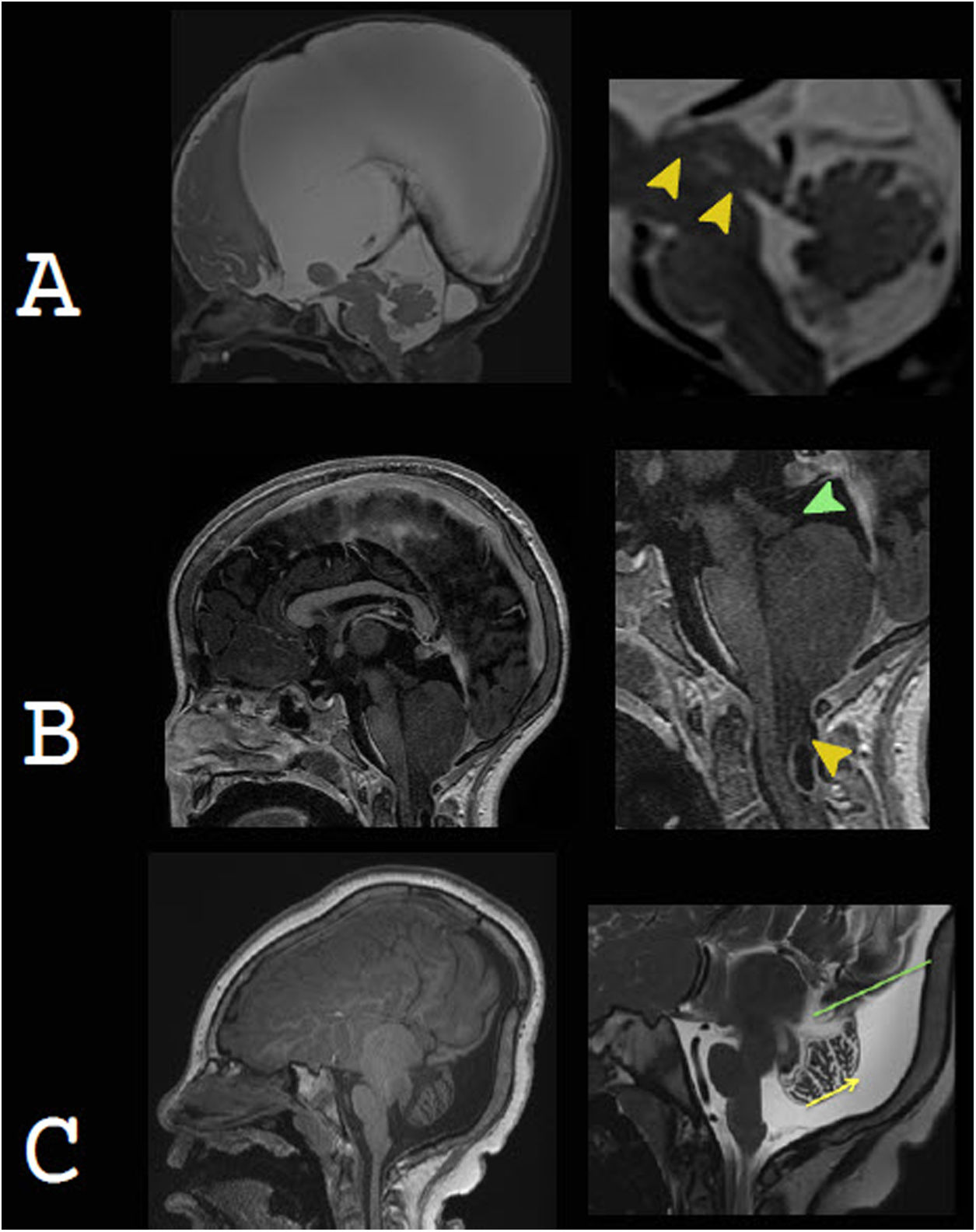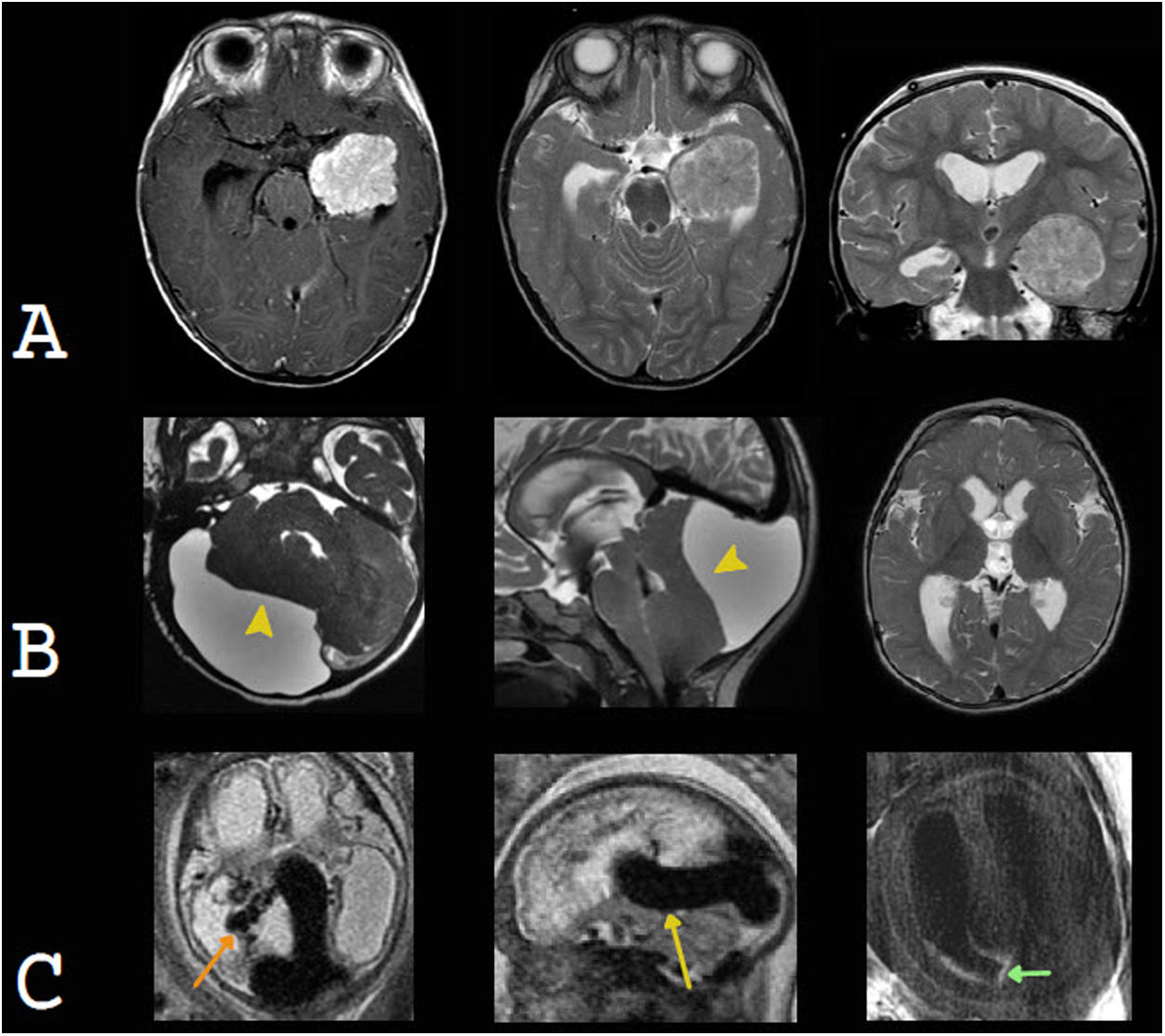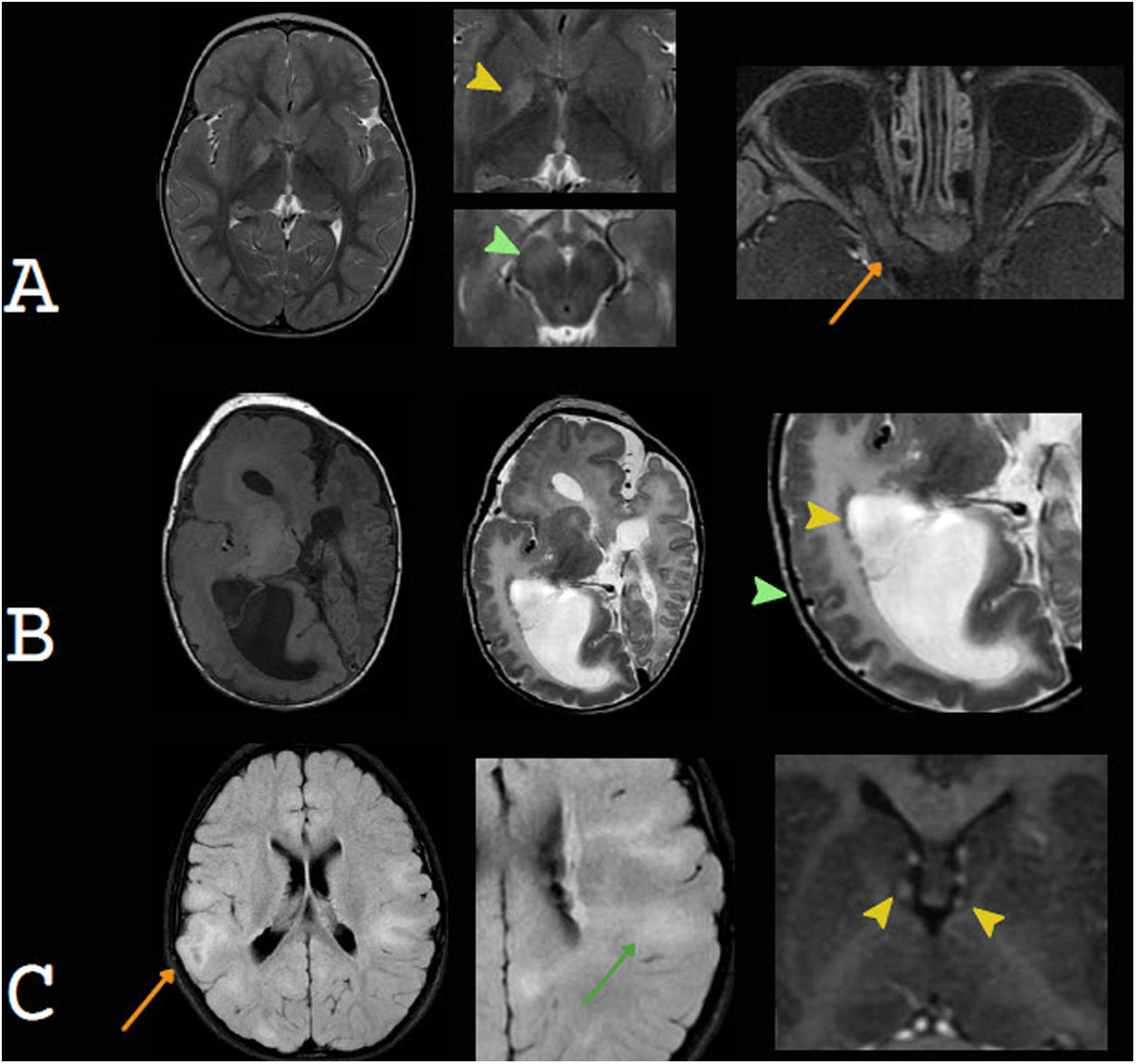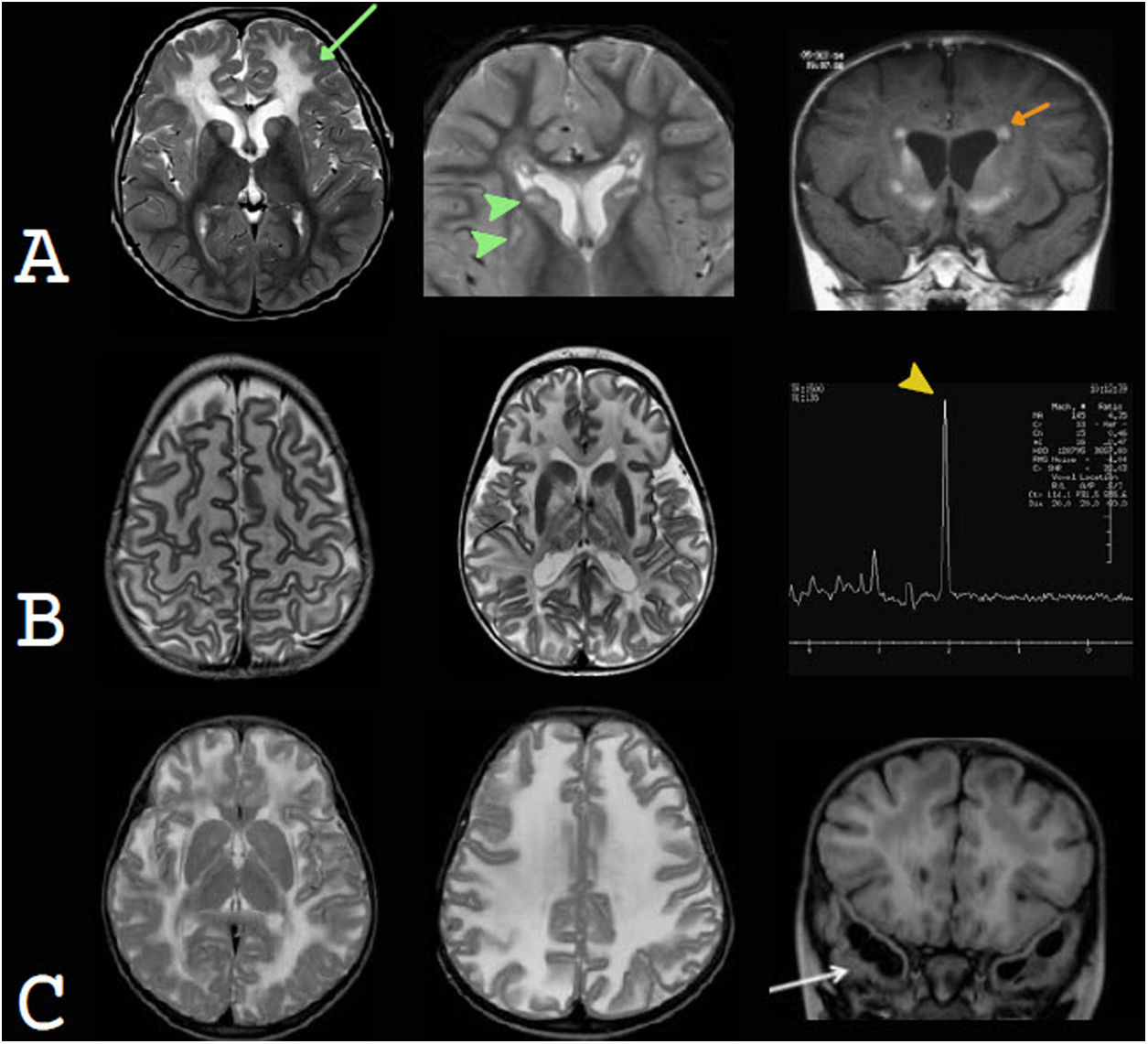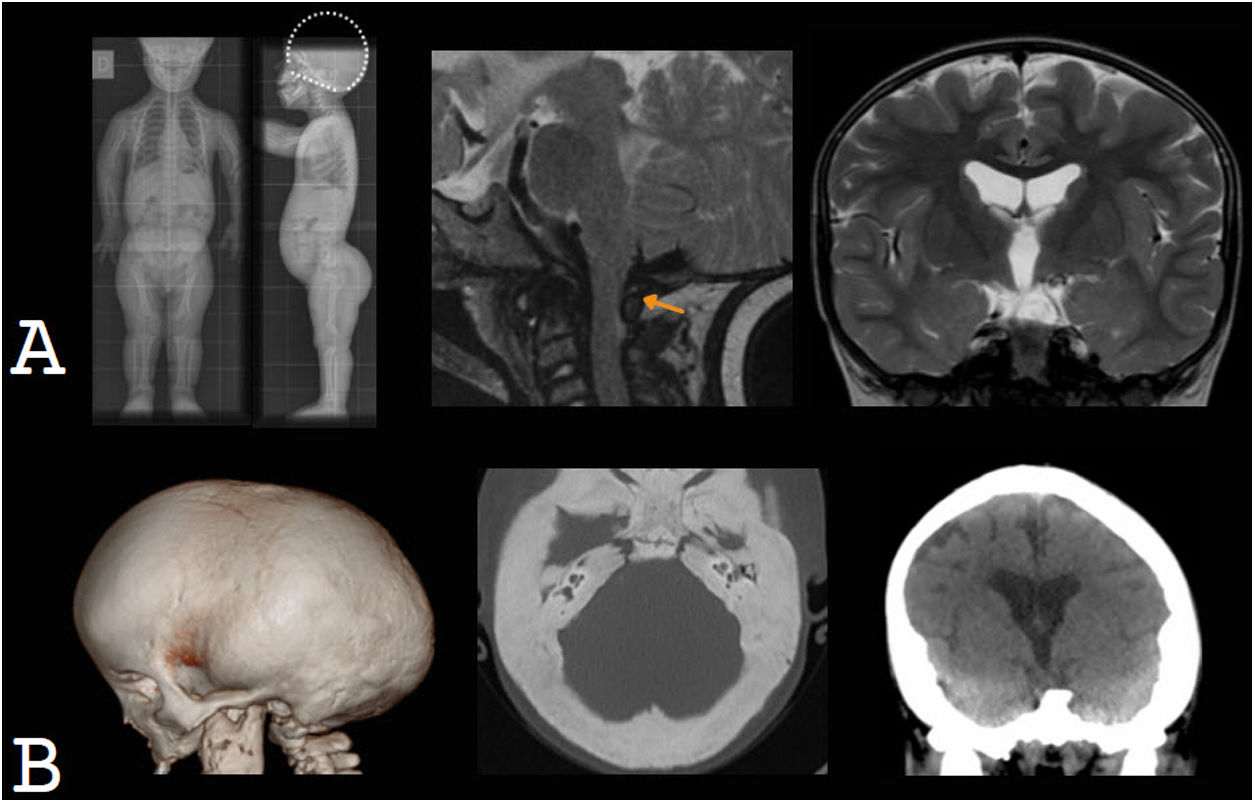Macrocephaly is a clinical term defined as an occipitofrontal circumference more than two standard deviations above the mean. It is present in 5% of children and is a common indication for imaging studies. There are multiple causes of macrocephaly; most of them are benign. Nevertheless, in some cases, macrocephaly is the clinical manifestation of a condition that requires timely medical and/or surgical treatment. The importance of imaging studies lies in identifying the patients who would benefit from treatment. Children with macrocephaly associated with neurologic alterations, neurocutaneous stigmata, delayed development, or rapid increase of the circumference have a greater risk of having disease. By contrast, parental macrocephaly is predictive of a benign condition. Limiting imaging studies to patients with increased risk makes it possible to optimize resources and reduce unnecessary exposure to tests.
Macrocefalia es un término clínico definido como el incremento de la circunferencia occipitofrontal por encima de dos desviaciones estándar. Se presenta en el 5% de los niños y es una indicación frecuente de estudios radiológicos. Existen múltiples causas de macrocefalia, que corresponden mayoritariamente a condiciones benignas. Sin embargo, en algunos casos es la manifestación clínica de una patología que requiere una oportuna intervención médico-quirúrgica. La relevancia del estudio radiológico radica en la identificación de estos pacientes. Aquellos niños que se presentan con macrocefalia asociada a alteraciones neurológicas, estigmas neurocutáneos, retraso del desarrollo o rápido aumento de la circunferencia craneal poseen un riesgo aumentado de presentar patología. Por el contrario, el antecedente de macrocefalia parenteral es predictivo de una condición benigna. Acotar el estudio radiológico a los pacientes de mayor riesgo permite optimizar recursos y disminuir la exposición innecesaria a exámenes.










